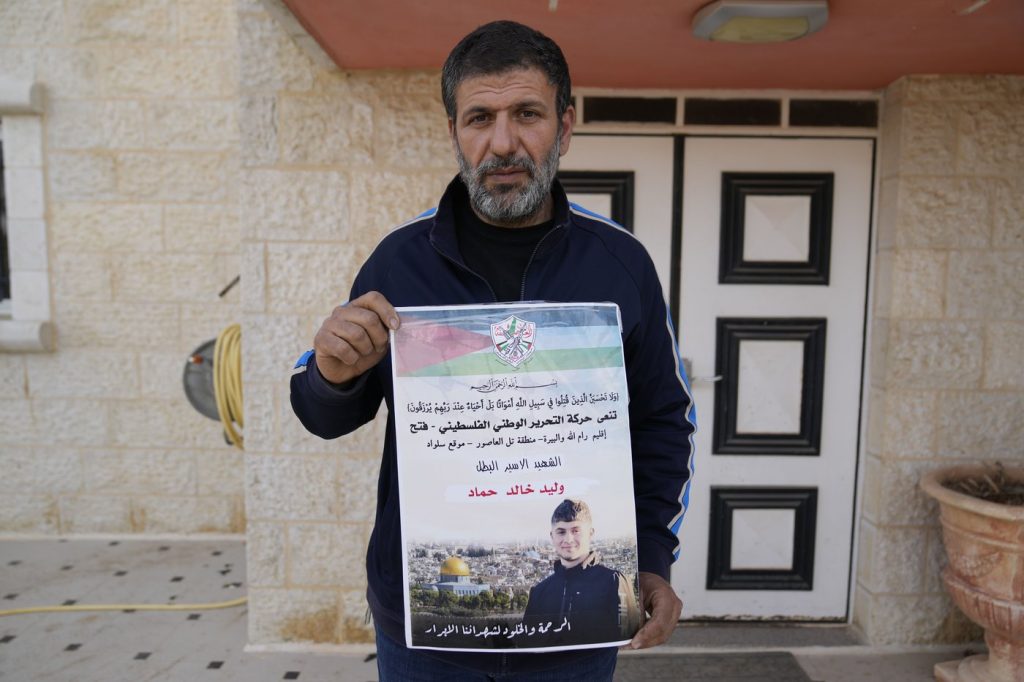JERUSALEM (AP) – A 17-year-old Palestinian from the West Bank, Walid Ahmad, has died after collapsing while being held in an Israeli prison for six months without formal charges. His death marks a significant event, as he is reported to be the first Palestinian teenager to die in Israeli detention. Ahmad's arrest occurred in September 2023 for allegedly throwing stones at soldiers, according to family sources.
Prior to his arrest, Walid was described as a healthy high school student who enjoyed playing soccer. His family voiced concerns regarding the conditions that led to his demise, particularly after the outbreak of the conflict following Hamas' attack on October 7, 2023, which prompted a crackdown on thousands of Palestinians by Israeli authorities.
Human rights groups have highlighted issues of widespread abuse in Israeli detention facilities. Although Israeli prison authorities deny systematic mistreatment, they acknowledge that the conditions have been reduced to the minimum legally permissible standards. The Israeli ministry responsible for prisons stated that all deaths in custody are investigated, but did not provide details surrounding Walid's death, which took place in Megiddo Prison, noted for prior accusations of mistreating Palestinian inmates.
Walid's father, Khalid Ahmad, recounted how his son, once full of life and energy, underwent significant health deterioration during his incarceration. After multiple court appearances that resulted in continued delays with no trial date set, Walid collapsed while in the prison yard on March 23, 2024, hitting his head before losing consciousness.
The family speculated that Walid may have contracted amoebic dysentery due to the appalling prison conditions. This infection can cause severe gastrointestinal distress and could lead to fatalities if untreated. The Palestinian Authority reported that Walid's death was the 63rd of a Palestinian prisoner since the onset of the ongoing conflict, with history showing approximately 300 Palestinians having succumbed in similar conditions since the 1967 Mideast war.
The Palestinian Authority further stated that Israel retains the remains of 72 Palestinian prisoners who died in custody, including 61 who passed away since the current escalation in violence. Conditions within the prisons have reportedly worsened in light of the conflict, as former detainees described instances of beatings, severe overcrowding, and inadequate medical care alongside outbreaks of scabies and other health issues.
The National Security Ministry of Israel, which oversees the prison service, boasts of having minimized the living conditions for Palestinian prisoners as a deterrent against violence. Thousands of Palestinians have been detained across the occupied territories on suspicions of militancy, with many held indefinitely without charge or trial, justified as a necessary security measure by Israeli authorities.
Walid's father recalled his son's optimism, expressing concern for his wellbeing during visits, only for the family to be informed of his death shortly after receiving news of a teenager's collapse in the prison. Reports from Walid's fellow inmates indicated he faced severe health issues related to dysentery, exacerbated by hygiene problems stemming from contaminated water and unsanitary food conditions.
Thaer Shriteh, a spokesperson for the Palestinian Authority’s detainee commission, indicated that Walid sustained injuries after collapsing, citing witnesses who claimed that prison staff did not provide timely medical assistance. An autopsy has been proposed to ascertain the exact cause of his death, although Israeli authorities have not yet set a date for this procedure.
In summary, the incident surrounding Walid Ahmad's death underscores ongoing concerns regarding the treatment of Palestinian detainees and the broader humanitarian implications of the Israeli-Palestinian conflict, particularly amidst the escalating tensions.










